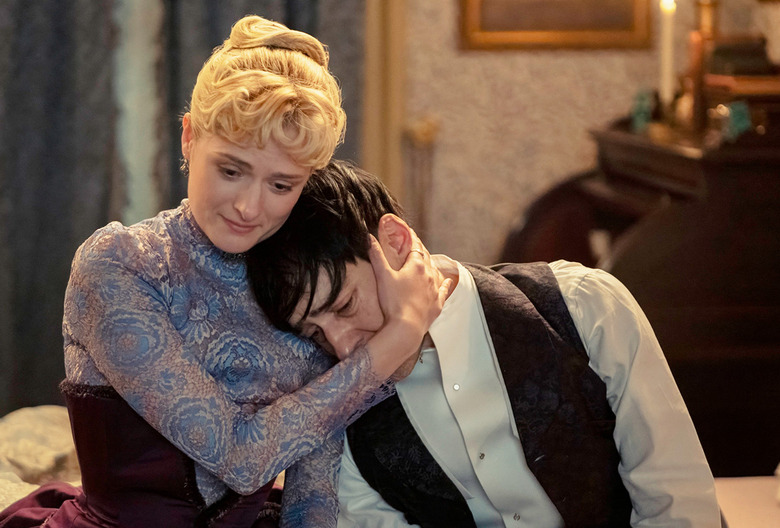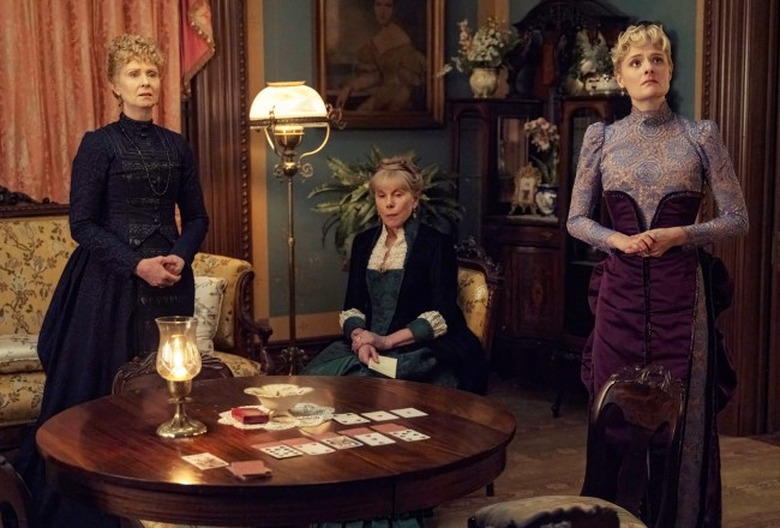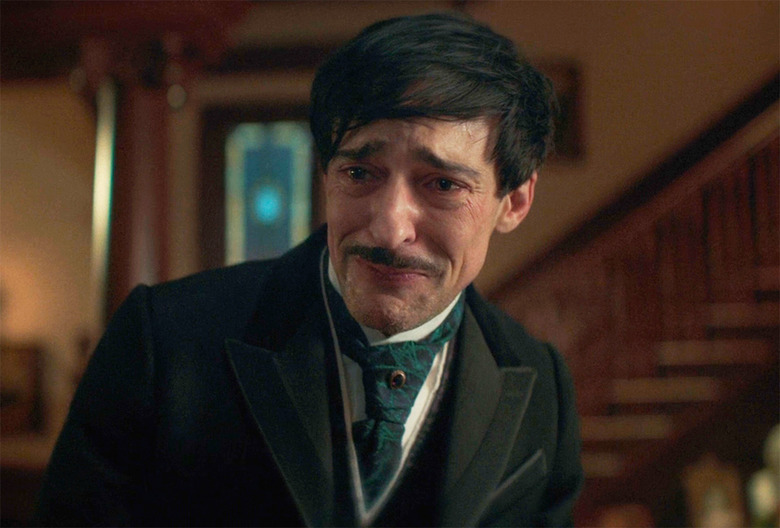The Gilded Age Boss Breaks Down Oscar's Tragic Outburst — Does Agnes Know The Truth About John Adams?
Yes, Sunday's episode of The Gilded Age ended on a dramatic (and potentially fatal) note for a key member of the show's cast — but that's actually not the heartbreaking storyline we'd like to discuss right now.
Instead, we need to talk about Oscar, who discovered that his lover John Adams left him a house upstate, following his own tragic death by speeding horse carriage. When he returned home in a puddle of grief, he lashed out at Agnes, essentially outing himself in the process. Here was their exchange:
OSCAR | "I suppose she knew John and I were... friends. But I agree, it seems odd that he gave more to me dead than when he was alive."
AGNES | "Oh, don't be macabre."
OSCAR | "How should I be, mama?! I can't be too sad, but I can't be too cheerful. I'm sure you don't want to hear that I miss him. I sat in the back row of his funeral like a stranger who walked in to get out of the rain, when I should have taken my rightful..."
AGNES | "Oscar, what is all of this about?!"
OSCAR | "Do you really want to know, mama?"
At this point, all three women have visibly read between the lines, picking up on what Oscar wasn't saying. Ada tried to explain it away to Agnes as Oscar "mourning the loss of his savior, as we all would," but the look in Agnes' eyes made it clear that she understood completely. Meanwhile, Marian visited Oscar in his room to — in so many words — show her compassion for his situation.

But what if Oscar had finished that sentence? Would his mother, aunt and cousin have responded positively, or would it have been an 1880s-appropriate disaster?
"For Agnes, I don't mean that she would be unaware of it, but she would never respond to it," series creator Julian Fellowes tells TVLine. "She would respond as if such a thing could not be, whereas Ada, who was gentler and less of a fighter, is more aware of it. I think that we found a rather marvelous performance from Cynthia [Nixon], where it's quite clear that she knows what they're dealing with, but there's a limit of how far she's prepared to go."
As for Marian, "a younger girl who is more liberal," Fellowes notes that she would probably be "more understanding," as we saw when she comforted Oscar later. "But no one would say to Oscar, 'Why don't you just take a house with him around the corner and go and live on 53rd Street and everything would be fine?' Because it wouldn't be fine. They can't compel him, or suggest even, that he should live his life as an outsider."
As a result, Oscar is "stuck with a life which God knows thousands of men and women were stuck with" in those times, and even later, Fellowes says. "They could live in the normal world along with everyone else, but essentially live a lie, or they could expose their lie and be an outsider for the rest of their lives. That was the choice they were offered, which was very hard. There were certain ways of thinking that people felt they couldn't escape. The nicer ones could be understanding and helpful, and I'm sure they did their best, but even that's not enough to make you go against the whole of your society."

It's tragic, of course, because we can't imagine two better people to come out to than Christine Baranski (Agnes) and Cynthia Nixon (Ada). Rather than focus on the limitations of the time period, however, Fellowes suggests that we use this as an opportunity to appreciate societal progress.
"I think it's worth considering and understanding that, yes, a hell of a lot of things have gotten worse [for the LGBTQ+ community], but some things have gotten better — and that's worth holding on to, I think."
Were you moved by Blake Ritson's devastating performance in the midst of Oscar's grief? Drop a comment with your thoughts on this pivotal scene below.
